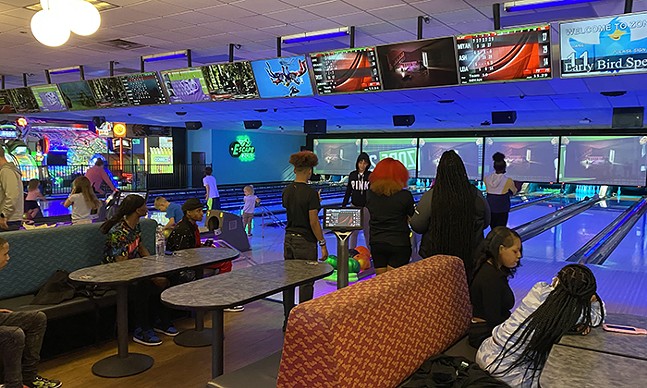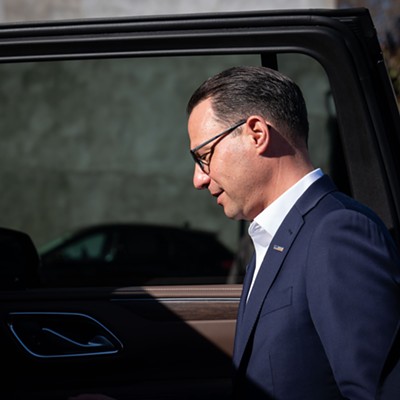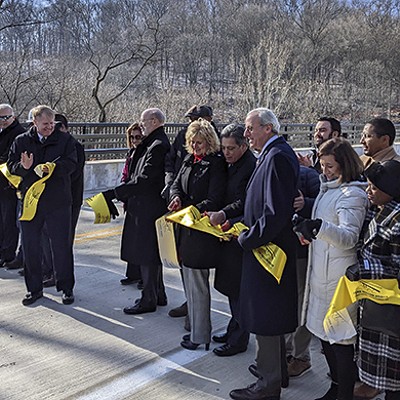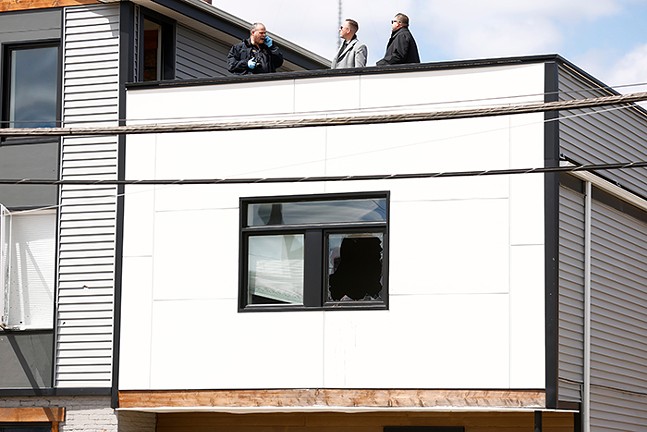
In late 2021, after reviewing the findings and recommendations of the March 2020 report from the Special Council on Gun Violence, Pa., Gov. Tom Wolf's administration announced that more than $11 million worth of grants would go to 20 Allegheny County organizations for gun violence intervention and prevention programs.
While violence intervention programs, like local grantees South Pittsburgh Peacemakers and the Healthy Village Learning Institute, aim to identify and de-escalate specific conflicts that may lead to violence, prevention programs, especially those targeting young people, tend to take a more holistic approach.
Local groups getting funding for youth gun violence prevention take a variety of different approaches to providing positive support, as advocates say that both a higher saturation and greater variety of youth programs are needed in the region in order to effectively prevent gun violence.
Pittsburgh City Paper spoke with two local grantees, both of which are using the state money to create new prevention programs for teens, to discuss their approach to violence prevention and how the programs and their participants continue to weather the dozens of shootings so far this year.
The power of music
There are many factors that contribute to youth violence, but youth development experts agree that young people do better when they have “family support and monitoring; caring adults; positive peer groups; strong sense of self, self-esteem, and future aspirations; and engagement in school and community activities.”Lori Rue, who describes herself as “a preventionist from way back,” tells City Paper in a phone interview, “the more [programming] we have, especially if it's community-based, the better it is.” Rue, the director of development and support services for Legacy Arts Project, says that it’s important to have many different kinds of youth programs, since, “Everyone's not gonna go to a Boys and Girls Club, everyone's not gonna be a Boy Scout, everyone's not going to, you know, want to sit down with a counselor and talk. We just have to have things that appeal to different types of kids.”
Rue played a central role in developing and securing state funding for one of the city’s newest violence prevention programs for teens, Drums Not Guns, an apprenticeship program from Legacy Arts Project, a Black arts organization located in Homewood that's focused on youth and African-centered programming. Drums Not Guns offers Black teen boys an opportunity to learn African drumming, a craft that can be “very aggressive and energetic and expressive,” in a community shaped by “best practices for youth development,” according to Rue.
Drumming is a great outlet for both kinetic and creative energy, Rue says, and the programming that frames the drumming focuses on "who they are and where they come from,” with three outcomes in mind: I create, I am, and we connect.
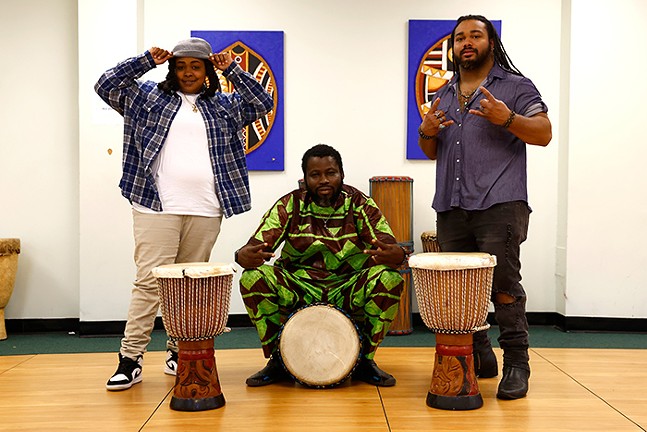
Drums Not Guns also has an apprenticeship component. “One of the things that we are doing in our youth programming is saying, ‘Hey, guess what? Art can be a career. And if you want to explore that, we have some opportunities for you,’” Rue says. Program participants train under Fodé Camara, who Rue says is one of the few master drummers in the area.
“We're hoping to build that next generation of drummers that would be here to support the different African-centered art organizations” in Pittsburgh, says Rue.
Their first cohort was a collaboration with Brashear High School, which, Rue says, has a significant number of students who emigrated here from African countries. So far, they’ve had 46 young men who have gone through the program, according to Rue.
“They keep showing up because they want to be there,” she says, “not because they have to be there.”
Rue says she’s glad that Drums Not Guns has “something to offer” as communities all over the county grieve incidents of gun violence. She says Legacy Arts is looking forward to expanding the program this summer, and it’s not too late for Black high school-aged boys to get involved in Drums Not Guns’ summer programming.
Leading by example
Last year’s violence prevention grantees also include the Kingsley Association’s new Teen LEAD program. Teen LEAD, which stands for "leadership, education, assistance, and development," offers tutoring, homework assistance, health and wellness programming, guest speakers, field trips, and food to participants between 13 and 19 years old, three days a week after school at the Kingsley Association in Larimer. The stated objective of the program is to “develop a positive self-image in all participants.”Since its start last summer, Cathryn Calhoun, Teen LEAD program coordinator, tells City Paper that 30 teens have participated in the program. While the curriculum continues to develop to support students’ needs, Calhoun says that the program always addresses five core themes: public speaking, life skills, financial literacy, post-secondary preparation, and job preparation. Calhoun says Teen LEAD activities also address topics such as mental health, leadership, self-esteem, and health and wellness, and they regularly ask participants for feedback on program content.
This year’s many gun deaths and injuries have been difficult for Teen LEAD and its students, according to Calhoun, but she says Teen LEAD has been able to help participants feel their feelings.
“Gun violence continues to impact both the program and participants,” says Calhoun, adding that some program participants knew those injured and killed in last month’s shooting on the North Side. She says the Teen LEAD program provided space for grieving participants to express themselves.
“During several sessions, they were able to discuss their feelings about the tragedy and were supported by their peers,” she says.
Unfortunately, Calhoun says that fear surrounding the recent uptick in shooting deaths has negatively affected program participation. “Some students are afraid to venture out to different neighborhoods or areas for a fear of gun violence or being in the right place, but at the wrong time,” she says. “Many of the teens have lost friends and they [would] rather stay home where they feel safe.”
She adds that they’re working “on making sure to give students reassurance that they are safe and in a safe environment with people who care for them and want to see them grow.”
What next?
The grants alone "will not stop gun violence,” says Elizabeth Rementer, Wolf’s press secretary. “Like so many forms of systemic inequality, gun violence disproportionately harms communities of color and marginalized communities. Gov. Wolf believes to truly stop it in its tracks, we need to invest in solutions to the systemic and structural issues that cause ongoing inequity in our society starting with education.”In addition to supporting community-led efforts to prevent and reduce gun violence, the Special Council on Gun Violence report also recommends improved training and education. Gov. Wolf’s office tells City Paper that he wants to create a “high-quality education system in Pennsylvania with equal access to a quality education for all.”
Rementer says his plans include investing an additional $1.9 billion to secure a better future for all through education, as well as continuing to call on the legislature to pass “commonsense, life-saving legislation.”
At Legacy Arts, Rue says that, in addition to educational programming, she’s excited about the prospect of giving the participants “something fun because I think a lot of these situations are because kids developmentally just don't have an opportunity to be kids.”

